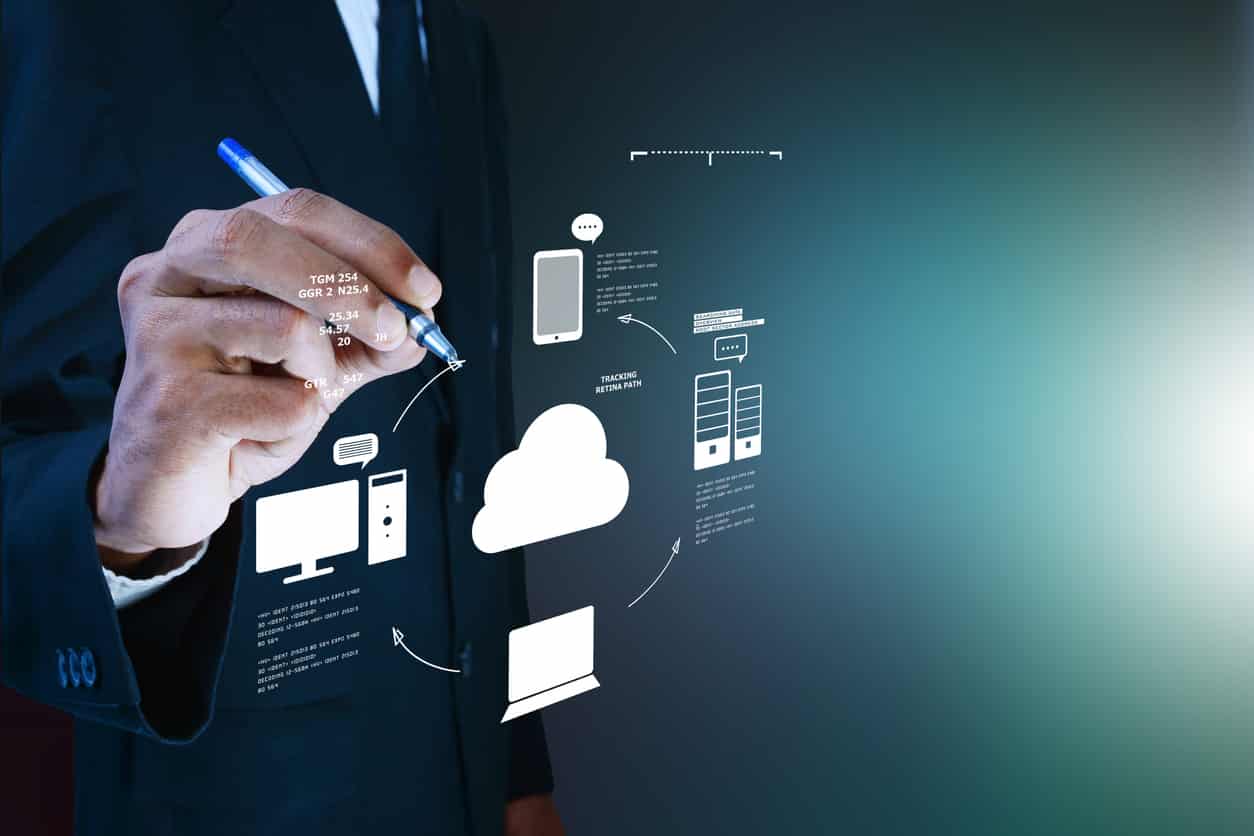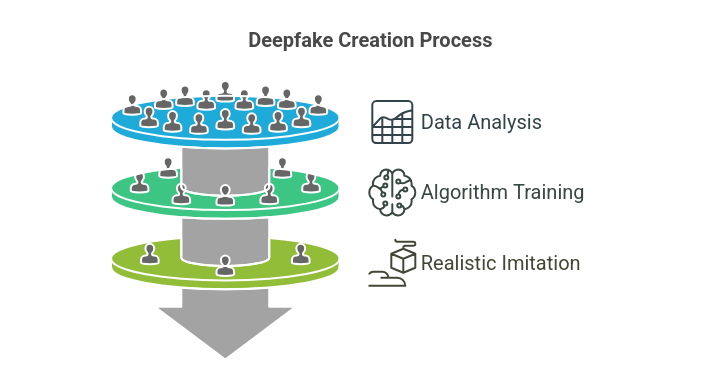AI, ML, and Cognitive Computing are the most “wow words” of our time, not hyped at all, but it’s mainly fascinating for breakthrough technological discoveries – Autonomous Vehicles, Quantum Computation, and Natural Language Processors! Let’s understand what cognitive computation is and see some of its Applications.
Contributed by: Dhawani Shah
Cognition is the mental process of Receiving, Storing, Developing, Transforming, and Recovering Information. These are related to the Perception, Attention, and Memory Functions of the Human Brain. Can a Machine perform such high-level functions of the Brain? Yes, nothing is impossible with the current technological revolution that surprises us day after day!
We have seen that a machine can remember Information. But how can it compute? A computation is a transformation of one memory state into another, implementing what mathematicians call a function. Cognitive computing is a combination of Cognitive Science – the study of the human brain and its functions – and Computer Sciences, with the goal to simulate human thought processes in a computerized model. Cognitive computing tends to build algorithms utilizing the theories of cognitive science. These results will have far-reaching impacts on our personal lives, Healthcare, Energy and Utilities, Banking and Finance, Retail Industry, Transportation and Logistics, Enterprise Management, Security, Education, and many more.
What is Cognitive Computing?
Machine Learning uses statistical models and algorithms to analyse and draw inferences and patterns from the data. It learns and adapts to new data without any intervention. It provides the ability for computers to learn from the preprogrammed algorithms. And Artificial Intelligence provides algorithms to computers to work intelligently. This intelligence allows machines to solve complex problems and make decisions that maximise the chance of success.
Cognitive computing is a self-learning system that uses Machine Learning and Data Mining algorithms, Neural Networks, and Visual Recognition to perform human-like tasks intelligently. Cognitive computing focuses on mimicking human behaviour and reasoning to solve complex problems. It learns at scale, reason with purpose, and interacts with humans naturally. Cognitive Computing methods mostly rely on Deep Learning methods and Neural Networks.
Visual recognition uses Deep Learning and neural network algorithms to study the patterns and identifies what is given in the photo/video. It analyses images for scenes, objects, text, and other subjects. A good example of visual recognition is the Google Lens, which uses our phone’s camera to capture images and provide information about the object. Natural Language Processing (NLP) is the ability to understand the human language. It also understands a large amount of natural language data and processes it, and analyses it to make inferences. A very common example of NLP is the smart compose feature of Gmail, where it suggests next words and sentences to write. After writing an email, it suggests the mood of the content – for, e.g. Formal, Offensive, Appreciative, and Anger.
A pocket calculator can solve arithmetic problems, but it will never improve its speed or accuracy, no matter how much it practices. It doesn’t learn: for example, every time I press its square root button, it computes the same function in exactly the same way. The human ability to learn is a fascinating aspect of general intelligence. We already know how a computer/machine can remember and compute, but how can it learn? It computes a function and appropriately arranges and can calculate any computable function. For matter to learn, it must instead rearrange itself to get better and better at computing the desired function. The brain learns much more efficiently based on the same idea. The network of interconnected neurons can learn analogously: if you repeatedly put it into certain states, it will gradually learn these states and return to the form of any nearby states.
What can Cognitive Computing do?
Cognitive Computing can be considered as a technological game-changer. It understands the language, recognizes objects, text, face, and scenes and also recognizes the voice and interacts with humans and other machines without much fuss. The human quality that is not possessed by machines is the emotional and spiritual connection. They merely understand the statement but do not understand the emotion underlying it. These qualities would help machines understand humans more accurately, like Siri or Alexa. They somewhat lack to understand the social and cultural context of the questions. These personal assistants like Siri and Alexa are not the true example of cognitive Computing. The answer as per the pre-programmed responses priorly fed into their systems, but soon the time will come when we can talk to these assistants and get a thoughtful response. E.g. Chatbots
Cognitive Computing can analyze the vast quantity of structured as well as unstructured data and can make recommendations. It can do this for any field like healthcare, finance, law, and education. For example, it can analyze all the information of patient’s records, journal articles, diagnostic tools, best-proven practices, etc., and suggest the doctor’s treatment decisions. It is not that it will overpower the role of the doctor. Still, it will help the doctor to make better decisions by analyzing the humongous amount of information available that no human can reasonably process and retain such a huge amount of information.
The idea is to make the computer think more like humans and help us to make accurate decisions that will maximise the chance of success and bring an era that will expand our capabilities and knowledge.
Applications of Cognitive Computing
Cognitive Computing is used in almost every field, we will discuss a few of them here:
Retail Industry
Cognitive Computing in the Retail industry has very interesting applications. It helps the marketing team to collect more data and then analyse to make retailers more efficient and adaptive. These help companies to make more sales and provide personalized suggestions to the customers. E-commerce sites have integrated cognitive computing very well, they collect some basic information from the customers about the basic details of the product they are looking for and then analyse the large available data and recommend the products to the customer. Cognitive computing has brought numerous advancements to the industry. Through demand forecasting, price optimization, and website design, cognitive computing has provided retailers with the tools to build more agile businesses.
Apart from e-commerce sites, cognition can be very useful for on-floor shopping as well. It will help retailers to provide customers personalized products – what they want, when they want, and how they want to derive meaningful experiences, opportunities to reduce the wastage and losses by providing the fresh products by predicting the demand priorly, and by automating areas it will reduce the cycle time, effort and improve the efficiency.
Logistics
Cognition is the new frontier in the Transportation, Logistics, and Supply chain. It helps at every stage of logistics, like Designing Decisions in Warehouse, Warehouse Management, Warehouse Automation, IoT, and Networking. In the warehousing process, cognition helps in compiling storage code, automatic picking with the automated guided vehicle, and use of warehouse robots will help to improve work efficiency. Logistics distribution links use cognition to plan the best path improving the recognition rate which will save a lot of labour. IoT will help in warehouse infrastructure management, optimizing inventory, enhancing operations in the warehouse and the autonomous guided vehicle can be used for picking and putting operations. Apart from IoT, the other important technology is Wearable Devices, which helps to convert all the objects to sensors and augments human decision-making and warehouse operations. These devices have evolved from smartwatches to smart clothes, smart glasses, computing devices, exoskeletons, ring scanners, and voice recognition.
Banking and Finance
Cognition in the banking industry will help to improve operational efficiency, customer engagement, and experience and grow revenues. Cognitive banking will completely reshape the banking and financial institutions on three dimensions: Deeper contextual engagement, New analytics insights, and Enterprise transformation. We are already experiencing examples of such transformation for tasks like performing various banking transactions digitally, opening a new retail account, processing claims and loans in minutes. This technology has proved to be very helpful in the areas of product management and customer service support.
Cognitive banking will provide customized support to the customers, it will help in deciding personalized investment plans based on the customer being risk-averse or risk-taker. Also, it will provide personalized engagement between the financial institution and the customer by dealing in the individual fashion with each customer and focusing on their requirements. Here, the computer will intelligently understand the personality of the customer based on the other content available online authored by the customer.
Power and Energy
‘Smart Power’ is the new intelligent future. The oil and gas industry faces huge cost pressure to find, produce and distribute crude oil and its byproducts. Also, they face a shortage of skilled engineers and technical professionals. Energy firms take various critical decisions where huge capital is involved, like which site to explore, allocation of resources, and quantity of production. For a long time, this decision was taken based on the data collected and stored and the expertise and intuition of the project team.
With cognitive computing, technologies process volumetric data to support decisions and learn from those results. This technology will help us to make various important decisions of the future like commercially viable oil wells, ways to make existing power stations more efficient, and will also give a competitive advantage to existing power companies.
Cyber Security
Cognitive Algorithms provides end-to-end security platforms and detects, assesses, researches, and remediate the threats. It will help to prevent cyber Attacks (or cognitive hacking), this will make customers less vulnerable to manipulation as well as provide a technical solution to detect any misleading data and disinformation.
With the increase in volumetric data, and rise in cyber attacks, and the shortage of skilled cybersecurity experts we need modern methods like cognitive computing to deal with these cyber threats. Major security players in the industry have already introduced cognitive-based services for cyber threats detection and security analytics. Such cognitive systems not only detect threats but also assess systems and scan for vulnerabilities in the system and propose actions.
The other side of the coin is that for cognitive computing we need huge volumetric data, now securing the privacy of the data is also of utmost importance. To take full advantage of cognitive computing we need to build a large database of information, and at the same time also maintain its confidentiality and prevent data leakage.
Healthcare
We have already briefly discussed the application of Cognitive Computing in healthcare. Recent advancement in cognitive computing has helped medical professionals to make better treatment decisions and improves the efficiency of the Medical professionals and also improves the outcomes of the patients. It is a self-learning algorithm that uses Machine learning algorithms, data mining techniques, visual recognition, and natural language processing, dependent on real-time patient information, medical transcripts, and other data. The system processes an enormous amount of data instantly to answer specific questions and make intelligent recommendations. Cognitive computing in healthcare links the functioning of humans and machines where computers and the human brain truly overlap to improve human decision-making. This will empower doctors and other medical professionals to better diagnose and treat their patients and above all helps in planning customized treatment modules. For example, Genome Medicine is one such area that has evolved by cognitive computing.
Education
Cognitive computing is going to change how the education industry has been working. It has already started bringing a few of the changes. It will change how the schools, colleges, and universities have been functioning, and it will help to provide personalized study material to students. Can you even imagine how fast a cognitive system can search the library or the journals and research papers from a digital library?
A cognitive assistant can provide personal tutorials to students, guide them through the coursework, and can also help students to understand certain critical concepts at their own pace. It can also guide students in selecting the courses depending upon their interest. It can act as a career counsellor. Cognitive computing will not only help students but will also help teachers, support staff, and administrative staff for delivering better service, preparing student reports and feedback.
Man vs Machine or Man + Machine
Cognitive computing is not the rules-based approach but it learns on the scale with the purpose and interacts with humans naturally rather than being explicitly programmed. These systems learn and reason from their interactions with human beings and their experiences with their environment. This captures people’s imagination but it also sets up man vs machine, but that is not intended at all. Various studies show that between man and machine it will beat either man or machine and that is because of the various capabilities that both have. Humans stand unique with the capabilities like intuition, compassion, design, value judgments, and common sense and on the other hand, the machine has immense computational capabilities like the capability to fast check the facts, deep learning, large scale math and to reason – that helps to get into discovery.
The opportunity here is Man and Machine and not Man vs Machine, the idea is not to make people unemployed but to shift the employment and let humans do more skillful jobs in every discipline and we need to bring the synergy between man and machine.
Conclusion
Cognitive Computing has the power to reshape all the fields of life, and it transforms the way organisations work and responds to the needs of customers, stakeholders, and employees. It helps companies to be more information-centric, interact with systems similar to the way they interact with humans, and it continuously learns from the previous interactions and constantly improves over time.
With advancements in technology, machines and humans have learned infinite ways to collaborate. It is expected that more capabilities based on cognitive Computing will evolve over time. The main aim of cognitive Computing is to harness data and insights to deliver a better experience, values, and individual engagement.
If you wish to learn more such concepts, join the pool of free online courses offered by Great Learning Academy and upskill today!






